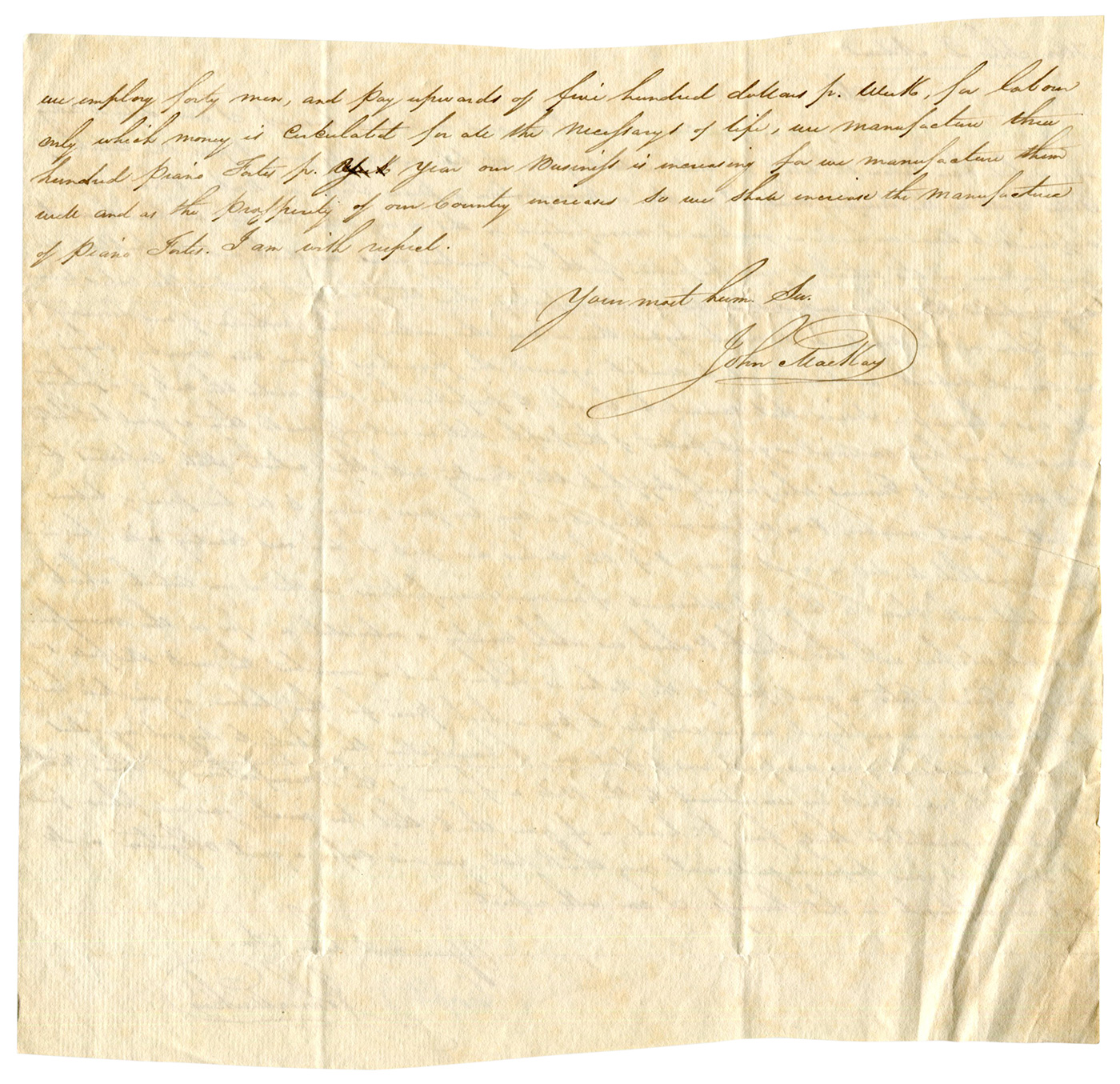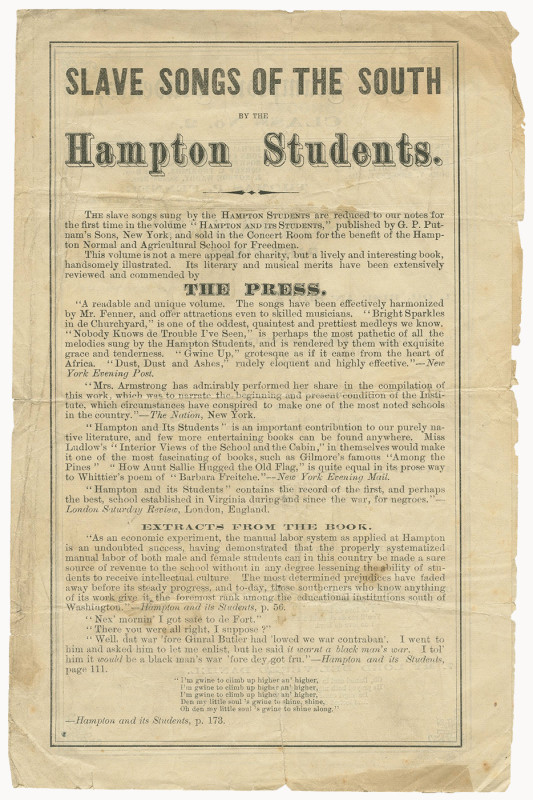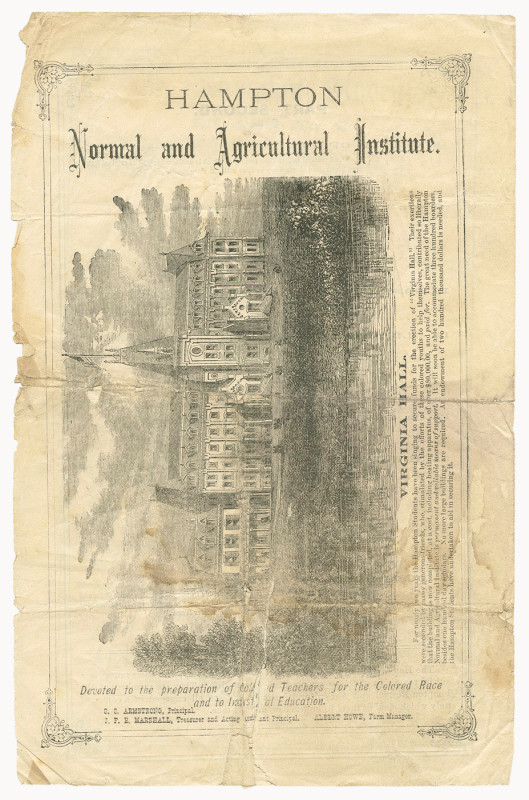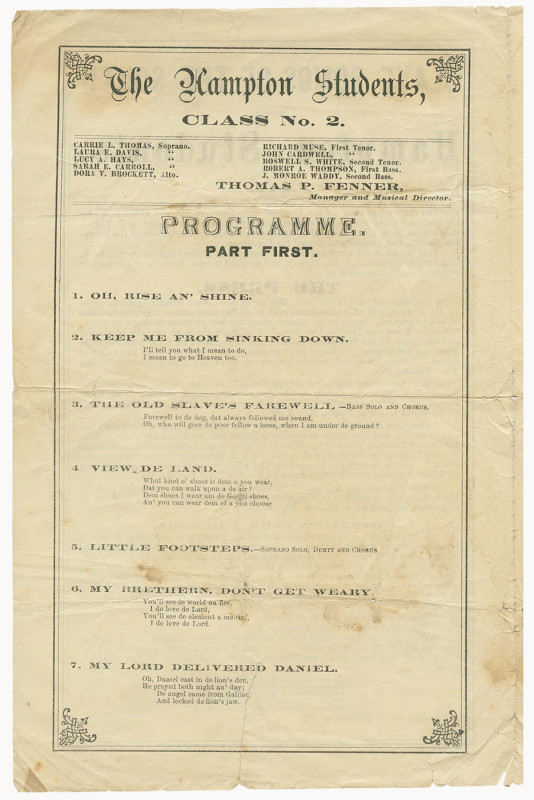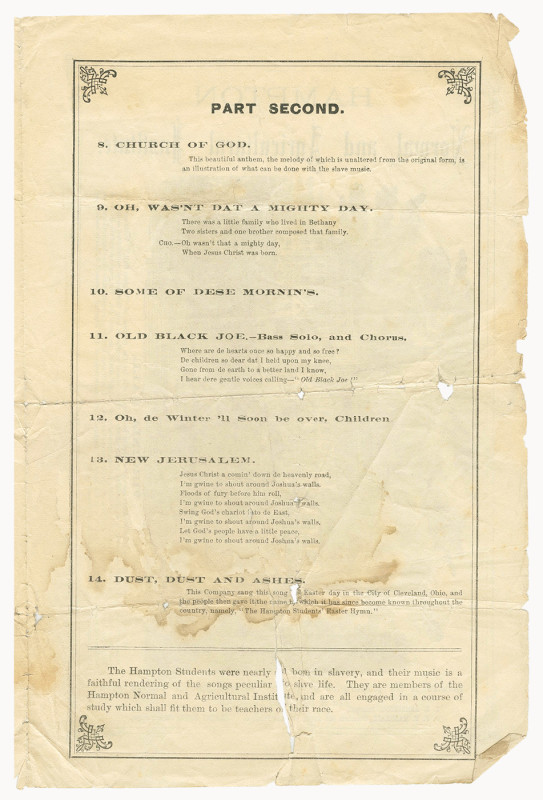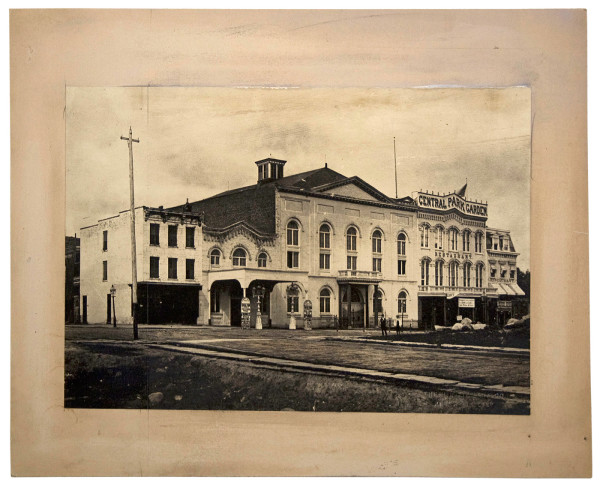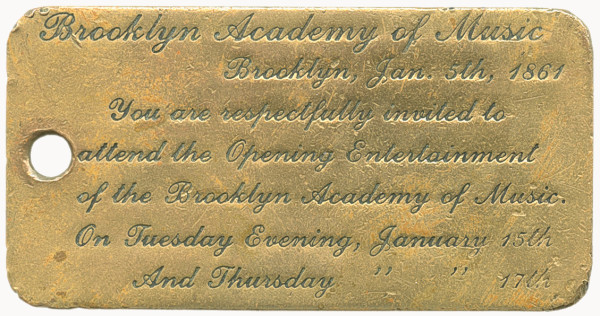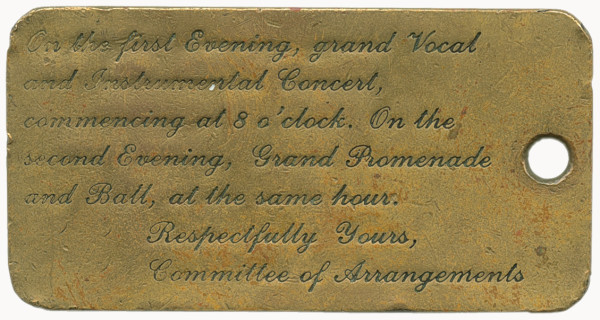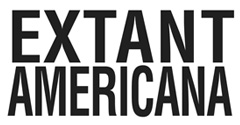An impassioned plea to John Quincy Adams to preserve tariffs on American Piano manufacturers during the Nullification Crisis
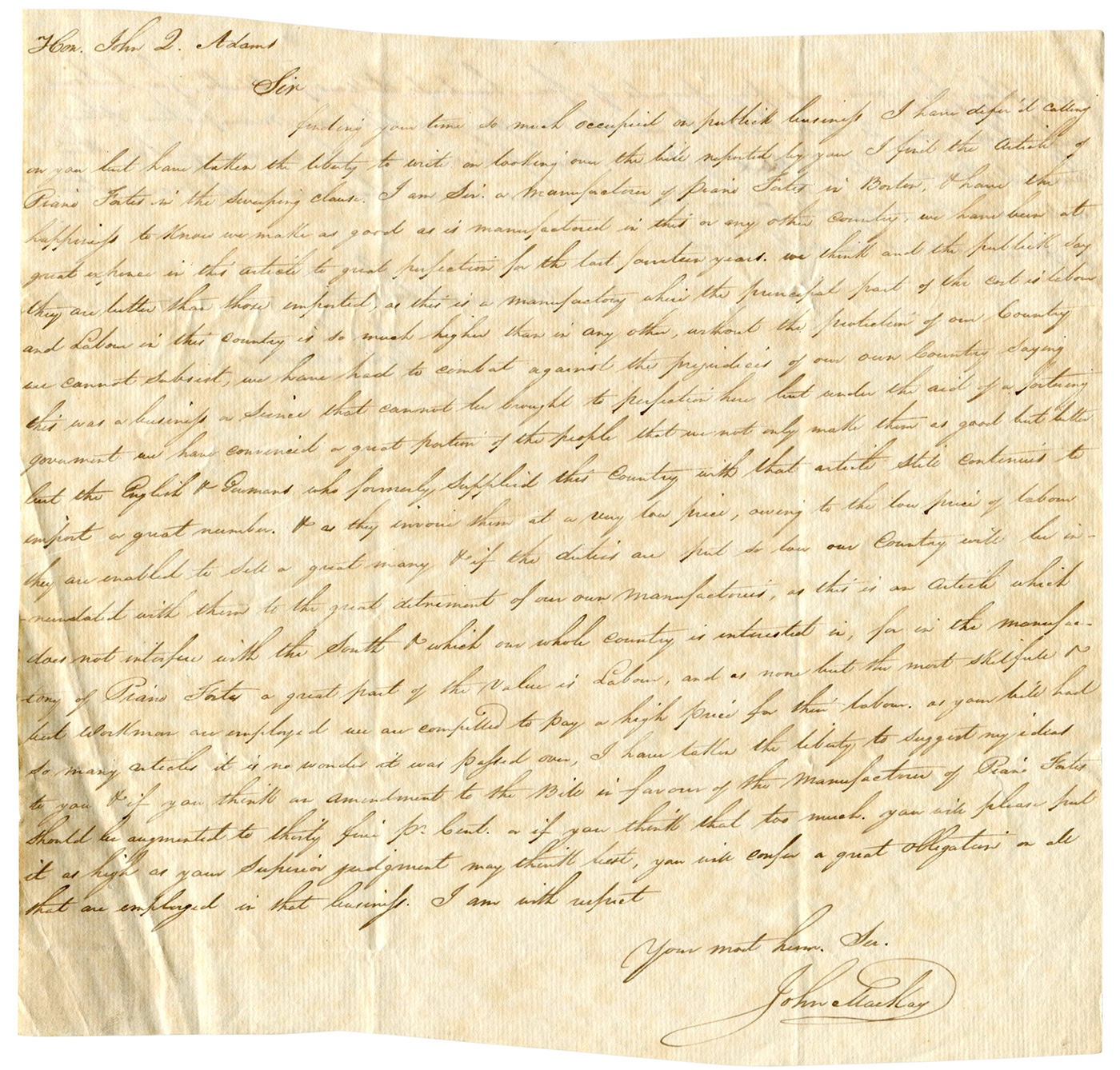 (Protection and American piano manufacturing) John MACKAY (1774-1841) Prominent and early industrialist in Boston, he entered the shipping industry in 1796 at age 22 under the direction of his uncle, shipping magnate Mungo MacKay (1740-1811), who was already well established in the trade. By 1798, he was ship’s master conducting international voyages, returning with goods from far afield for the Boston market. In 1815, Mackay and two partners began manufacturing church organs. By 1820, several members of the Mackay family were in partnership with Alpheus Babcock, manufacturing pianos in Boston’s West End. MacKay and Jonas Chickering began manufacturing pianos in Boston in 1830. They constructed a modern factory in 1837 on Washington Street. MacKay died at sea in 1841, en route to South America to procure wood for his piano cases.
(Protection and American piano manufacturing) John MACKAY (1774-1841) Prominent and early industrialist in Boston, he entered the shipping industry in 1796 at age 22 under the direction of his uncle, shipping magnate Mungo MacKay (1740-1811), who was already well established in the trade. By 1798, he was ship’s master conducting international voyages, returning with goods from far afield for the Boston market. In 1815, Mackay and two partners began manufacturing church organs. By 1820, several members of the Mackay family were in partnership with Alpheus Babcock, manufacturing pianos in Boston’s West End. MacKay and Jonas Chickering began manufacturing pianos in Boston in 1830. They constructed a modern factory in 1837 on Washington Street. MacKay died at sea in 1841, en route to South America to procure wood for his piano cases.
Autograph Letter Signed “John MacKay” on recto and verso, 2pp., 188 x 200 mm. (7 1/2 x 7 3/4 in.), [Boston, c. 1832-1833], to John Quincy Adams, imploring the Massachusetts congressman to ensure tariffs high enough to protect American industry, and in particular, American piano manufacturers, from European competition.
MacKay’s plea to Adams, likely written as South Carolina’s nullifiers raged against Clay’s protective tariffs as embodied in the “American System,” reads in large part [with original spellings retained throughout]: “… this is a manufactory where the principal part of the cost is labour and Labour in this Country is so much higher than in any other, without the protection of our Country we Cannot Subsist, we have had to combat against the prejudices of our own Country Saying this was a business or Since that cannot be brought to perfection here but under the aid of a fostering government we have convinced a great portion of the people that we not only make them as good but better but the English & Germans who formerly supplied this Country with that article still continues to import a great number. & as they invoice them at a very low price, owing to the low price of labour they are enabled to sell a great many & if the duties are put so low our Country will be innundated with them to the great detrement of our own Manufacturers, as this is an article which does not interfere with the South… none but the most skilfull… workmen are employed we are compelled to pay a high price for their labour. As your bill had so many Articles it was no wonder it was passed over, I have taken the liberty to suggest my ideas to you & if you think an Amendment to the Bill in favour of the Manufacturer of Piano Fortes should be augmented to thirty five pr. Cent. or if you think that too much, you will please put it as high as your Superior judgment may think best…”
The verso bears what appears to be small portion of another Autograph Letter Signed “John MacKay“, [n.p., n.d.] and reads, in full: “…we employ forty men, and pay upwards of five hundred dollars p. Week, for labour only which Money is Calculated for all the Necessarys of life, we manufacture three hundred piano Fortes p. Year or Business is increasing for we manufacture them well and as the Prosperity of our Country increases so we shall increase the manufacture of Piano Fortes.”
MacKay’s partner, Jonas Chickering (1798-1853), was one of the great pioneers of piano manufacturing, being the first in the world to use one-piece cast-iron frames — one of the most significant technological contributions to the development of the instrument.
Light soiling at lower left margin, light creases, trimmed at margins, else very good.
(EXA 5895) $450
